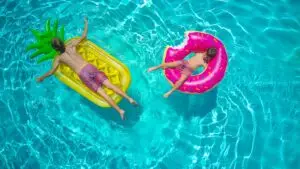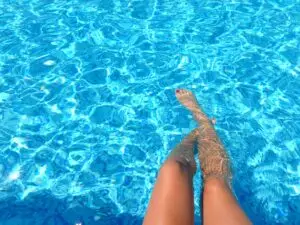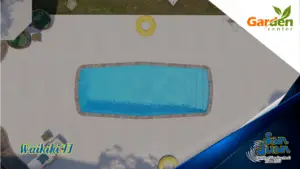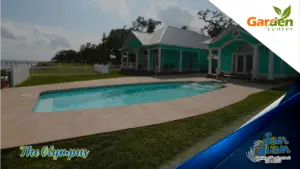Table of Contents
- Introduction
- Living in Las Cruces and the Importance of a Pool Pump
- The Importance of an Efficient Pool Pump
- The Heart of Your Pool
- Cost-Saving Benefits
- Understanding the Las Cruces Climate
- Characteristics of the Las Cruces Climate
- Impact on Pool Ownership
- Material Suitability
- Preparation and Precautions
- What to Consider When Choosing a Pool Pump
- Size of Your Pool
- Type of Pool
- Energy Efficiency Ratings
- Noise Level
- Types of Pool Pumps
- Single-Speed Pumps
- Dual-Speed Pumps
- Variable-Speed Pumps
- Energy Efficiency Considerations
- Compatibility with Saltwater Systems
- Energy Efficiency Factors
- Energy Star Ratings
- Horsepower vs. Efficiency
- The Timer Functions
- Saltwater Pool-Specific Considerations
- Advantages of Saltwater Pools in Las Cruces
- Corrosion Resistance
- Electrolysis System Maintenance
- Energy Consumption
- Water Balance
- Importance of Proper Installation
- DIY vs. Professional Installation
- Electrical Safety
- Routine Maintenance for Longevity
- Regular Cleaning
- Yearly Inspections
- Seasonal Adjustments
- Conclusion
- Summary and Final Recommendations
Living in Las Cruces, the importance of a swimming pool cannot be overstated, especially when you’re trying to beat the desert heat. But what really keeps your oasis in top shape? Well, it’s your pool pump. In this comprehensive guide, we’ll delve into how to maximize efficiency when selecting the best pool pump for your needs.

The Importance of an Efficient Pool Pump
A pool pump is the heart of any swimming pool. Just like how your heart circulates blood throughout your body, the pool pump circulates water, ensuring that it’s filtered and clean. And like any organ, its efficiency matters not just for its own longevity but also for saving you some green—yes, we’re talking about money.
Understanding the Las Cruces Climate
Las Cruces is known for its arid climate, which means pools here are not just a luxury but sometimes a necessity. The hot conditions can make pools susceptible to rapid water evaporation and chemical imbalances, making the role of a pool pump even more critical.
If you’re planning on installing a pool in Las Cruces, it’s essential to have an in-depth understanding of the local climate. The weather conditions will not only influence your pool usage but can also impact its longevity and maintenance needs. In Las Cruces, we are fortunate to have a climate that is exceptionally well-suited for pool ownership.
Characteristics of the Las Cruces Climate
Las Cruces boasts an arid climate, categorized by hot summers and mild winters. The city sees more than 300 days of sunshine per year, making it an excellent location for soaking up the sun by your fiberglass pool. Average high temperatures in the summer months can reach into the 90s, offering plenty of warm days to take full advantage of your pool. Winters are generally mild, with daytime temperatures often staying above 50 degrees Fahrenheit. Rainfall is minimal, averaging around 9-10 inches per year, which is ideal for keeping your pool area dry and usable.
Impact on Pool Ownership
This type of climate has several advantages for fiberglass pool owners. Firstly, the extensive sunny days mean you can enjoy your pool for a more extended part of the year, potentially even all year round if you opt for heating options. Secondly, the lack of significant rainfall and temperature fluctuations means that you’ll spend less time balancing your pool’s water chemistry, a task that can be time-consuming and costly.
Material Suitability
The hot, dry conditions of Las Cruces are well-matched with the durability and low-maintenance characteristics of fiberglass pools. Our fiberglass pools are UV-resistant, preventing the color from fading even under the relentless New Mexico sun. They are also built to withstand temperature extremes, which means you won’t have to worry about surface cracking or material degradation over time.
Preparation and Precautions
Despite the favorable conditions, it’s still essential to take a few precautions. For instance, due to the high sun exposure, you may want to consider installing a pool cover to minimize water evaporation. Also, given the strong sun, investing in a shaded area or poolside pergola may offer a cooler and more enjoyable pool experience.
What to Consider When Choosing a Pool Pump
Size of Your Pool
It’s not just the physical dimensions but also the capacity in gallons that matters. Ensure the pump can handle the water volume efficiently.
Type of Pool
Since we specialize in saltwater and fiberglass pools, considerations like corrosion resistance and flow rates specific to saltwater conditions are essential.

Energy Efficiency Ratings
Energy efficiency is not just eco-friendly but also pocket-friendly. Look for pumps with higher efficiency ratings.
Noise Level
An often-overlooked factor, but important for maintaining that serene backyard experience. Opt for pumps with lower decibel ratings.
Types of Pool Pumps
Choosing the right pool pump is a critical aspect of ensuring that your swimming pool operates efficiently and maintains a healthy water circulation. Different types of pool pumps come with varying functionalities, energy consumption rates, and maintenance needs. Here, we outline the most commonly used types of pool pumps and discuss how they fit into the overall setup of our specialty, which is saltwater, fiberglass pools.
Single-Speed Pumps
Single-speed pumps are the traditional choice and are generally the least expensive upfront. They operate at a constant speed, circulating water through the filtration system at a set rate. While easy to operate, these pumps can be less energy-efficient, especially for larger pools or pools that require extended filtration cycles.
Dual-Speed Pumps
As the name suggests, dual-speed pumps offer two speed settings: high and low. The high-speed setting is equivalent to the single-speed pump, whereas the low-speed setting is more energy-efficient and quieter. This allows for flexibility; you can use the high-speed setting when the pool is in heavy use and switch to low-speed for regular, day-to-day filtration.
Variable-Speed Pumps
Variable-speed pumps are the most energy-efficient option. They allow you to adjust the speed to fit the specific needs of your pool, whether that’s rapid circulation for a pool party or slow, consistent filtration for everyday use. These pumps are particularly well-suited for saltwater pools, as you can fine-tune the speed to maintain optimal salt levels and ensure that the electrolysis system works effectively.
Energy Efficiency Considerations
Given the hot and arid climate of Las Cruces, energy-efficient options like dual-speed and variable-speed pumps are often recommended. These pumps allow for more effective water circulation without consuming excessive energy, a factor that becomes particularly relevant considering the extended swimming season in Las Cruces.
Compatibility with Saltwater Systems
When choosing a pump for a saltwater pool, it’s essential to ensure compatibility with saltwater conditions. All of our pumps are selected with this consideration in mind, to ensure long-lasting performance without corrosion or degradation from the saltwater.
Energy Efficiency Factors
Energy Star Ratings
Having an Energy Star label is like a badge of honor for pool pumps. It signifies that the pump meets stringent efficiency standards.
Horsepower vs. Efficiency
Too much horsepower can be a waste of energy. Understanding the exact needs of your pool can help you choose a pump with the right horsepower.
The Timer Functions
Look for pumps with timers. These can be programmed to operate at non-peak hours, saving you even more.
Saltwater Pool-Specific Considerations
When it comes to installing a pool in Las Cruces, saltwater pools are our specialty. While the climate provides a naturally conducive environment for any type of pool, there are several specific considerations you should keep in mind if you opt for a saltwater system.
Advantages of Saltwater Pools in Las Cruces
Saltwater pools offer several benefits perfectly suited to the local climate. For one, the saltwater is generally easier on the skin and eyes than traditional chlorine pools, which is a huge plus for those hot, dry days when you’ll want to spend extended periods in the water. Additionally, saltwater pools require fewer chemicals, meaning you’ll spend less time on maintenance and more time enjoying your investment. This also aligns well with the low-maintenance nature of our fiberglass pools.
Corrosion Resistance
One concern with saltwater pools is the potential for corrosion, especially in components like ladders, lighting fixtures, and other metal elements. However, our fiberglass pools are inherently resistant to the corrosive effects of saltwater. That being said, it’s essential to select pool hardware that is designed for saltwater use to ensure that every aspect of your pool remains in top-notch condition for years to come.
Electrolysis System Maintenance
Saltwater pools use an electrolysis system to convert salt into chlorine, keeping the water sanitized. While this reduces the need for adding chlorine manually, the system itself requires occasional upkeep. In the arid Las Cruces climate, where water evaporation can be a concern, maintaining consistent salt levels becomes crucial for the electrolysis process to function effectively. Therefore, regular checks on your system and salt levels will ensure uninterrupted pool enjoyment.
Energy Consumption
Saltwater pools may consume more energy than their chlorine counterparts due to the electrolysis system. Given Las Cruces’ long swimming season, energy use is something to consider when budgeting for your pool. However, the trade-off in reduced maintenance time and chemical costs often balances out this additional expense.
Water Balance
Lastly, just like with any pool, maintaining the proper water balance is essential. However, a saltwater system can make this task somewhat simpler. The natural buoyancy and feel of saltwater are less impacted by the high temperatures and low humidity typical of the Las Cruces climate, meaning fewer adjustments to your water chemistry may be needed.
Importance of Proper Installation
DIY vs. Professional Installation
While it might be tempting to install the pump yourself, a professional installation can ensure all variables are optimized for maximum efficiency.
Electrical Safety
A well-installed pool pump is also a safely installed pool pump. Electrical safety checks, including proper grounding and wiring, are crucial.
Routine Maintenance for Longevity
Regular Cleaning
It may sound tedious, but regularly cleaning the pump basket and skimmer can vastly improve efficiency.
Yearly Inspections
Even if the pool pump seems to be in top-notch condition, a yearly professional inspection can help preempt any potential issues.

Seasonal Adjustments
Changing the pump settings to adapt to seasonal weather changes can make a significant difference in efficiency.
Conclusion
Choosing the right pool pump is crucial for any pool owner but even more so for those residing in Las Cruces due to the area’s unique climatic conditions. By considering the pump’s type, the pool’s specific needs, and various energy efficiency factors, you can make an informed choice that will serve you well for years to come.



